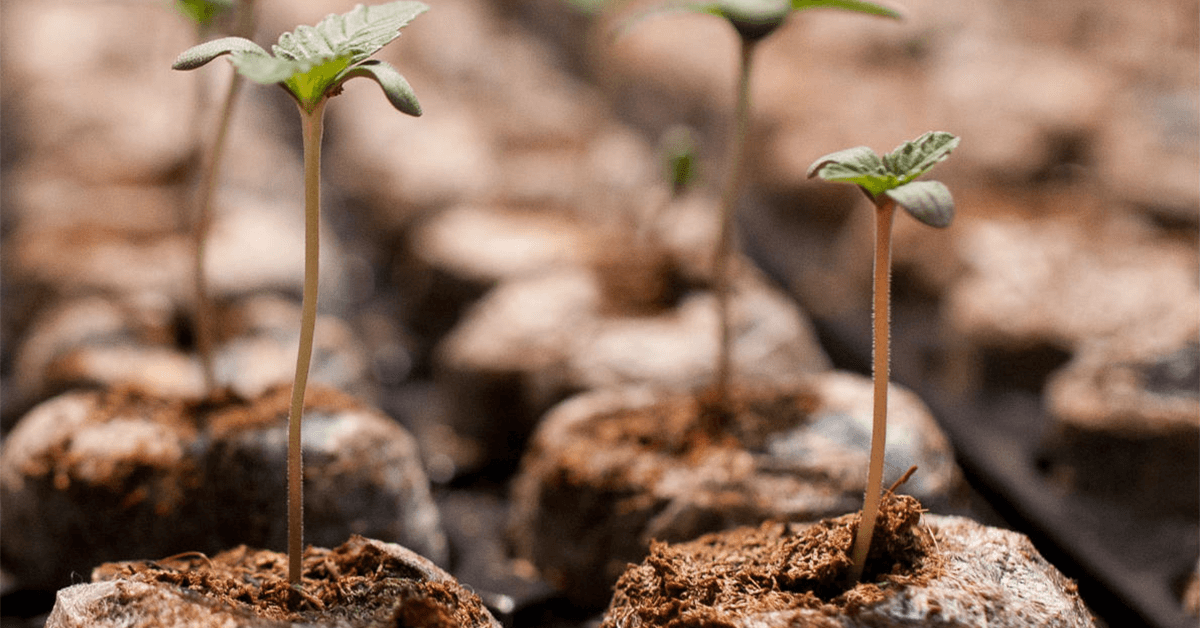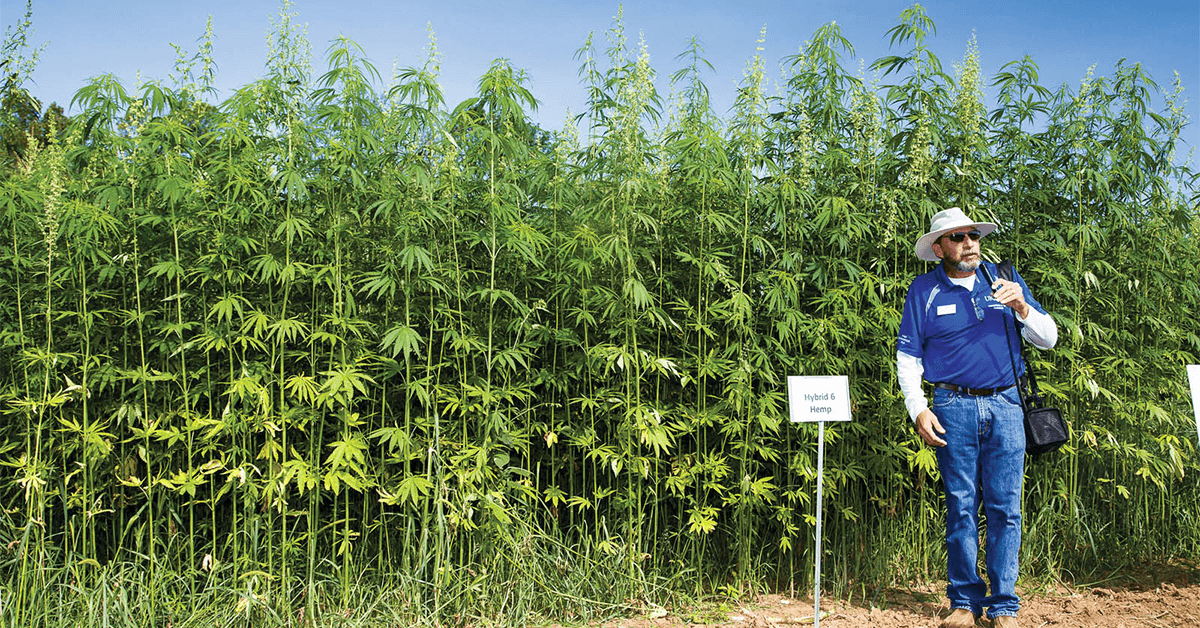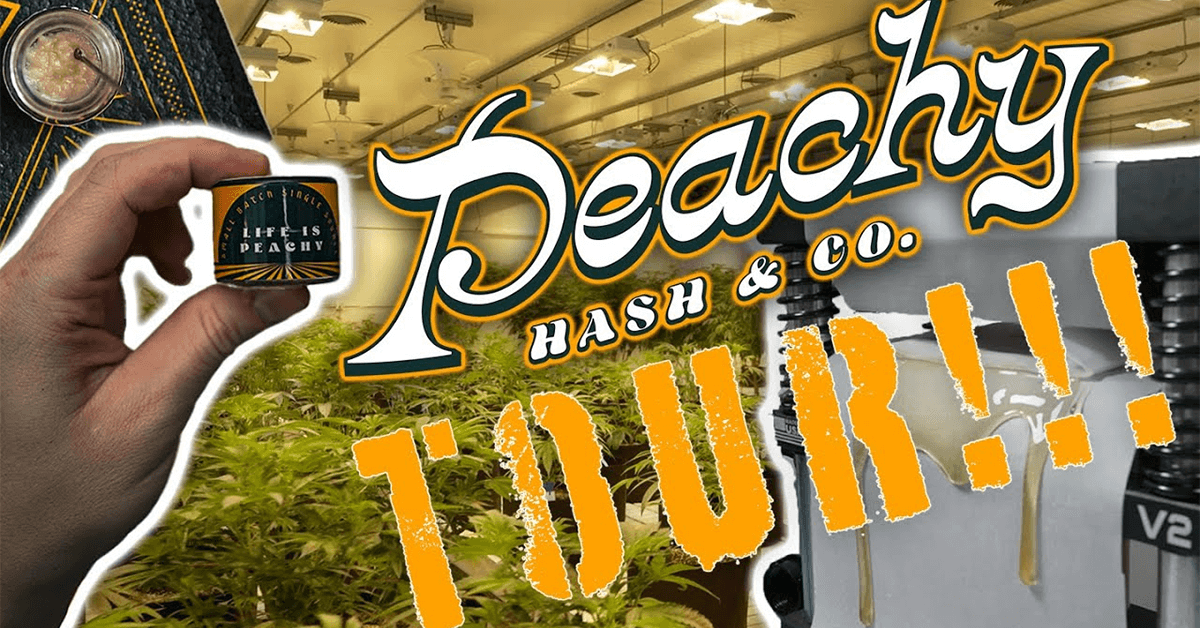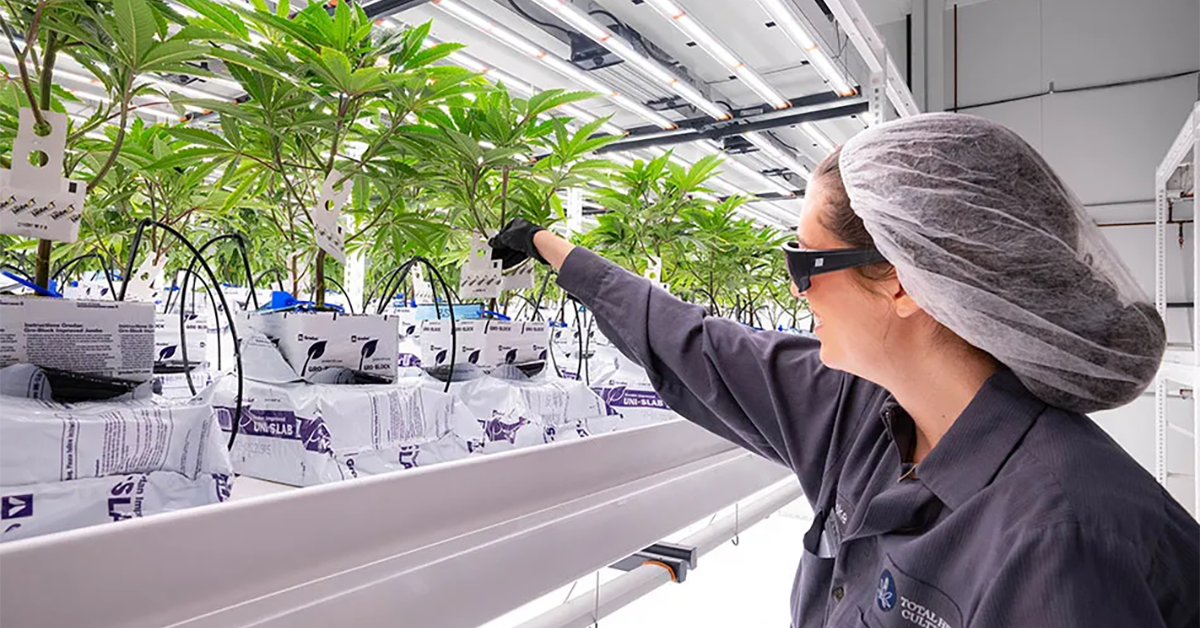Saigon Skunk Seeds Sprout Success: A Milestone in Vintage Cannabis Cultivation

Skunk Really Works, a pioneer in crop science, is thrilled to announce a significant milestone in their Saigon Skunk seed project. This groundbreaking initiative has successfully completed its first stage, with the seeds now beginning to germinate.
The Saigon Skunk collection, a homage to the rich heritage of Vietnamese landrace cannabis strains from the 1960s, blends historical significance with modern cultivation technology. This unique project was born out of a serendipitous gift — seeds originally collected by a U.S. soldier during the Vietnam War era, which lay dormant for decades in a pill bottle until their recent discovery.
The revival of these aged seeds was made possible by the collaboration with Cannomics Labs Tissue Culture Company. Utilizing advanced tissue culture and germination techniques, they have managed to rekindle the vitality of these seeds, bringing a piece of cannabis history back to life.
Franklin Beans has worked tirelessly to ensure the success of this project. Their efforts are not only a tribute to the legacy of seed collector Ray Darcy but also an illustration of the power of collaborative spirit within the cannabis industry.
As these seeds continue to sprout, Skunk Really Works looks forward to sharing the next phases of the Saigon Skunk project. This endeavor not only preserves genetic diversity but also provides cannabis enthusiasts a link to the past, fused with the technological advancements of today.

Stay tuned for more updates as we follow the growth of these historic seeds into a promising future.
Michigan's Hemp Industry: How Van Buren County is Leading the Way

Van Buren County, Michigan, has emerged as a key player in the U.S. hemp industry, ranking as the eighth-largest producer of hemp flower in the nation, according to the latest Census of Agriculture report released by the U.S. Department of Agriculture (USDA). This notable achievement underscores the county's significant contribution to Michigan's overall position as the seventh-largest hemp-producing state in the United States, marking an important milestone in the state's agricultural sector.
The report highlights California as the leading state in hemp flower acreage and production for 2022, with Alameda County topping the charts by harvesting over 5.5 million pounds of hemp flower. The Central Valley region of California, particularly Fresno and Tulare counties, accounted for nearly 20% of the country's domestically grown floral hemp, which is primarily cultivated for its cannabinoid-rich flower.
Nationally, more than 11 million pounds of hemp flower were produced in 2022 across approximately 1,800 American farms, covering an area of about 10,500 acres. The hemp flower, known for its use in extracting CBD and other cannabinoids, including intoxicating hemp-derived THC, saw California contributing a staggering 56% to the total U.S. production.
The USDA's decision to include hemp cultivation data in its 2022 Census of Agriculture, following the crop's legalization by the 2018 Farm Bill, has provided valuable insights into the industry. This inclusion marks the first instance of granular county-level data being made available, offering a clearer picture of the distribution and scale of low-THC cannabis cultivation across the country. This move has been widely applauded by hemp cultivators and industry stakeholders, reflecting the growing importance and acceptance of hemp within the agricultural landscape.
Michigan's position as a leading hemp producer, with Van Buren County playing a crucial role, is a testament to the state's commitment to fostering a vibrant and sustainable hemp industry. The data underscores the potential for further growth and innovation within this sector, as well as the importance of supporting local farmers and cultivators who are at the forefront of this burgeoning market.
A Deep Dive into Peachy's State-of-the-Art Cannabis Cultivation

In an industry where the bridge between technology and tradition forms the backbone of innovation, gaining an insider's perspective on advanced cannabis cultivation and processing methods is invaluable. This article is crafted from a comprehensive video tour produced by "The Gas Station," a prominent voice in the cannabis community known for spotlighting the forefront of cannabis culture and innovation. Through their lens, we're invited into Peachy's cutting-edge facility, a place where the magic of cannabis cultivation is not just observed but deeply felt.
The Gas Station (Instagram @gasstation.official), renowned for their captivating content and insightful coverage of the cannabis industry, brings this exclusive look into Peachy's operations. Their video offers viewers a unique opportunity to visually explore the intricate processes and dedication behind Peachy's exceptional products. From the delicate balance of nutrients to the meticulous care of each plant, the video captures the essence of what makes Peachy stand out in the cannabis space.
As we dive into the written exploration of Peachy's facility, keep in mind that the detailed descriptions and insights are drawn from The Gas Station's visual documentation. Their video not only complements this article but enriches the narrative, allowing readers and viewers alike to fully immerse themselves in the world of high-end cannabis cultivation and processing.
Nestled within the cannabis industry's evolving landscape, Peachy's facility stands as a testament to the harmonious blend of advanced technology and nature's touch. As one ventures through its corridors, the dedication to quality and innovation becomes evident, transforming a simple tour into a deep dive into the heart of modern cannabis cultivation and processing.
Starting with the fertigation area, affectionately termed the "Rhythm machine," Peachy showcases its commitment to a balanced approach by combining synthetic and organic nutrients. The integration of heavy 16s line alongside various other inputs from different nutrient companies, coupled with brewed teas applied at strategic growth phases, underscores their pursuit of enhancing flavor and improving hash and flower quality. This meticulous attention to nutrient composition reflects a chef-like precision, aiming to perfect the recipe for exceptional cannabis products.
At the core of Peachy's operation are its eight flower rooms, divided equally between High Pressure Sodium (HPS) and Light Emitting Diode (LED) lighting systems, alongside a significant mother and bedroom. This layout not only facilitates a diverse cultivation strategy but also demonstrates a commitment to energy efficiency and plant health optimization. The rooms, designed with airflow and environmental control in mind, utilize beneficial insects instead of pesticides, ensuring a natural and safe cultivation process.
The R&D room plays a crucial role in Peachy's innovation, focusing on pheno-hunting and genetic experimentation. The excitement surrounding new strains like Garlic Fries and collaborations with breeders like Mush Mouth from Oregon highlights Peachy's dedication to genetic diversity and quality. This approach allows Peachy to introduce unique flavors and effects to the market, catering to a wide range of consumer preferences.
Peachy's emphasis on full-term growth, hand-feeding in the vegetative and mother rooms, and the meticulous process of selecting the best clones from batches, reveal a hands-on approach that prioritizes quality over quantity. The use of aeroponic cloning techniques since 2015 indicates a tried and true commitment to efficient and effective propagation methods.
The dry room, where plants are hung whole for 14 days, and the process of pressing hash rosin, captured in the mesmerizing flow of golden resin, exemplify Peachy's dedication to preserving terpenes and ensuring the highest quality end products. This attention to detail throughout the cultivation and processing stages underscores Peachy's position as a leader in the production of top-tier cannabis products.
As the tour concludes, the overwhelming sense of dedication and passion from the Peachy team is palpable. Their commitment to excellence, from the meticulous care of their plants to the innovative processing methods, sets a high standard for the industry. Peachy's facility is not just a place of business but a beacon of innovation, pushing the boundaries of what is possible in cannabis cultivation and processing.
Saigon Skunk: Bridging Decades of Cannabis Heritage with Modern Science

Skunk Really Works, an innovative player in the crop science arena and a distinguished entity in the vintage cannabis market, is excited to announce the forthcoming Saigon Skunk collection, set to debut in late 2024. This latest offering is not merely a nod to the past but a reinvention, blending the rich heritage of Vietnamese landrace cannabis strains from the 1960s with cutting-edge cultivation technology.
In a remarkable twist of fate, Skunk Really Works came into possession of these historic seeds in 2023, thanks to a serendipitous gift. The seeds, which were originally collected by a U.S. soldier during the Vietnam War era, have lain dormant until recently discovered in a pill bottle. The journey of these seeds from a time of conflict to the present day is a poignant reminder of the enduring nature of cannabis strains and their cultural significance.
The challenge of reviving these aged seeds was taken up by Cannomics Labs Tissue Culture Company, which applied modern crop science techniques to rekindle their vitality. This process illustrates the advancements in cannabis cultivation and the ongoing efforts to preserve and celebrate genetic diversity within the industry.
Franklin Beans, a noted plant scientist and cannabis breeder, acknowledged the uncertainty that initially surrounded the future of these vintage seeds. However, the collaboration with Cannomics Labs proved to be a groundbreaking endeavor. Cannomics Labs, known for their tissue culture services and germination products, worked closely with Skunk Really Works to breathe new life into the seeds, ultimately resulting in a contemporary version of the Saigon Skunk that honors its historical roots.
The legacy of Ray Darcy, a passionate seed collector from Lansing, Michigan, also plays a pivotal role in this collection. Darcy, who passed away due to cancer, had meticulously preserved his own collection of cannabis seeds dating back to the 1990s. The germination of these nearly forgotten seeds proved challenging, prompting Skunk Really Works to seek assistance from experts. The Saigon Skunk collection is a tribute to Darcy's dedication, with Franklin Beans expressing a heartfelt homage: "We will put them to good use in your honor. There is a story behind all of our unique cultivators."
This endeavor by Skunk Really Works and Cannomics Labs Tissue Culture Company is a testament to the collaborative spirit within the cannabis industry, showcasing a fusion of historical preservation and scientific innovation. The Saigon Skunk collection promises to offer a unique experience to enthusiasts of both history and cannabis, merging the past's allure with today's technological achievements.
Michigan's LightSky Farms Blends Winemaking Techniques with Cannabis Cultivation

LightSky Farms, a prominent cannabis cultivation company in Michigan, has established a unique approach to cannabis production that mirrors the meticulous methods of winemaking. Founded in 2013 by Shannon Walters, a seasoned vintner, LightSky Farms (LSF) has become a well-known name in the state for its high-quality cannabis products.
LSF's cultivation practices are deeply rooted in a 'flavor-first' philosophy, as explained by Brooke Widener, the company's IPM coordinator. This approach prioritizes creating a memorable and enjoyable experience for consumers, focusing on the quality and sensory aspects of cannabis rather than sheer production volume.
Originally part of Michigan's caregiver program, LSF transitioned to the regulated Metrc market in 2018, following a partnership with the Landaal family, operators of Landaal Packaging Systems in Flint. The company has earned over 40 awards in the cannabis industry, including several High Times' Cannabis Cups and three first-place trophies at the recent Michigan Zalympix, underscoring its commitment to superior product experiences.
At the heart of LSF's strategy is a unique cultivation method that enhances the natural production of aromatic compounds like terpenes and flavonoids. This method involves environmental manipulation techniques, such as controlled dry back farming, similar to those used in viticulture. Widener, with her background in dry farming at a cannabis farm, explains that stressing the plants through these techniques can boost cannabinoid and terpene levels, sometimes leading to the expression of profiles that wouldn't normally occur under standard conditions.
LSF also places a high emphasis on data collection and analysis in its cultivation process. This includes daily data collection on watering rates, fertigation runoff, and light intensity, enabling the team to make precise adjustments to their nutrient recipes and lighting conditions. For example, LSF's flower lead, Chris Koslowski, regularly checks the photosynthetic photon flux density (PPFD) to ensure even canopy lighting and adjust light intensity based on plant needs. This meticulous attention to detail allows LSF to fine-tune the growth conditions for different strains, maximizing their genetic potential.
The cultivation facility, an impressive 85,000-square-foot space, has been designed with efficiency and quality in mind. LSF has adopted Fluence's LED lighting systems, preferring them over the older high-intensity discharge lamps for their energy efficiency and lower thermal output. This choice reflects LSF's commitment to environmentally conscious production and cost-effectiveness, which is crucial in maintaining competitive pricing for their products.
Brittany Hertzberg, LSF's sales and marketing manager, emphasizes the importance of producing safe, high-quality products while navigating the challenges of the adult-use market and the COVID-19 pandemic. The use of high-efficiency LEDs and other resource-saving practices has allowed LSF to offer its products at more accessible prices, fulfilling their mission of providing high-quality cannabis to a broader customer base.
Looking ahead, LSF is positioned for further expansion. With four additional LED-equipped grow rooms ready for activation, the company anticipates increasing demand. This is evidenced by a 15% increase in market penetration on the wholesale side over the past nine months, marking a significant growth phase for LightSky Farms.
Croptober in Michigan: The Prime Time for Cannabis Enthusiasts

As the idyllic Michigan landscape transforms into a canvas of vibrant autumn hues, cannabis enthusiasts have an additional reason to embrace the season – it's Croptober! This annual phenomenon is the golden hour for cannabis growers and consumers alike. But what exactly is Croptober and why should you be excited? Let's delve in.
Understanding Croptober
The term "Croptober" is a fusion of 'cannabis harvest' and 'October'. It's the period when the outdoor cannabis plants, which are annual by nature, bloom and indicate readiness for harvest. These plants respond to the diminishing daylight hours by flowering, a survival instinct to reproduce.
Interestingly, while indoor cultivators might control lighting to expedite the blooming phase, outdoor cannabis champions sustainability. Not only can outdoor plants grow to be double the size of their indoor counterparts, but they also consume just half the energy, underlining their eco-friendly nature.
Why Croptober Is Your Cannabis Shopping Fest
There's a reason Croptober is dubbed the best time to purchase weed:
-
Freshness Personified: The cannabis harvested in Croptober is the epitome of freshness. Most products display their harvest date, allowing you to gauge its newness. The hallmarks of freshness are a robust aroma, lush buds, and brilliant colors – all indicative of premium-grade cannabis.
-
Diverse Choices: Thanks to the bountiful harvest, you'll be spoiled for choice with a plethora of strains and products. No matter your preference, Croptober ensures that your beloved strains are likely available.
-
Attractive Deals: Croptober brings a deluge of promotions and discounts, courtesy of the fresh influx. It's the perfect season to replenish your stash or experiment with new products without straining your wallet.
-
Enhanced Experience: Fresh cannabis promises a heightened experience both in terms of potency and flavor. With cannabinoids and terpenes at their zenith, expect a rich and immersive cannabis session.
Spotting Fresh Cannabis
Ensuring the freshness of your purchase during Croptober is a cinch:
- Check the label for the harvest date.
- Prioritize buds that have a pronounced aroma, are dense, and showcase lively colors.
- Choose dispensaries known for their meticulous storage practices like temperature-regulated facilities and light-resistant packaging.
Storing Your Cannabis: Seal the Freshness
Now that you have your fresh batch, maintaining its freshness becomes paramount:
-
Limit Light: Cannabis deteriorates swiftly with light exposure. Always opt for dark, opaque containers.
-
Regulate Humidity: Maintain a relative humidity (RH) between 55%-65%. This prevents mold proliferation while retaining the moisture of your cannabis. Using humidity packs can be beneficial.
-
Optimal Temperature: A cool, dark storage space with temperatures between 55℉-75℉ is ideal. Fluctuating temperatures can compromise the cannabinoid and terpene integrity.
-
Limit Air Contact: Prolonged air exposure can transform THC into CBN, a compound with muted effects. Employ air-tight containers to ensure the longevity of your cannabis's potency.
In conclusion, as Michigan's foliage transitions into fall, Croptober brings an added layer of excitement for cannabis aficionados. Whether you're a cultivator witnessing the fruits of your labor or a consumer hunting for the freshest products, this season is truly a cannabis celebration. Happy Croptober!


 Helpful Links
Helpful Links